What is weather?
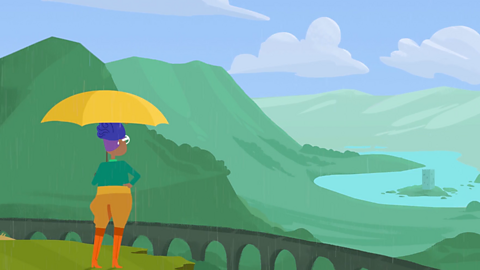
Weather is a description of what the conditions are like in a particular place. For example, it could be:
- hot or cold
- wet or dry
- windy or calm
- stormy, with thunder and lightning

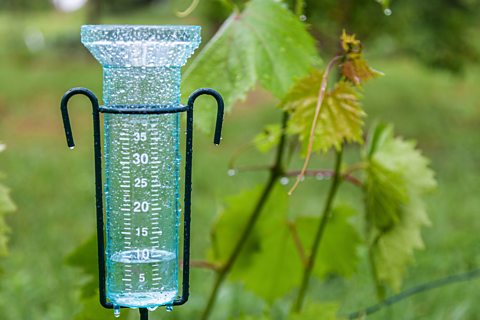
We can measure the weather using weather instruments. For example, an anemometer measures wind speed, and a thermometer measures temperature.
A wind vane shows which direction the wind is coming from and a rainfall gauge measures precipitation (rainfall).
What is climate?
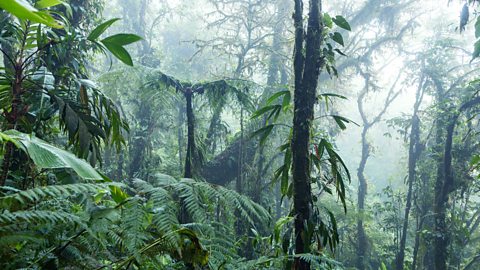
Climate is a description of the average weather conditions in a certain place for the past 30 or so years.
Different areas of the world have different climates. We call these climate zones.

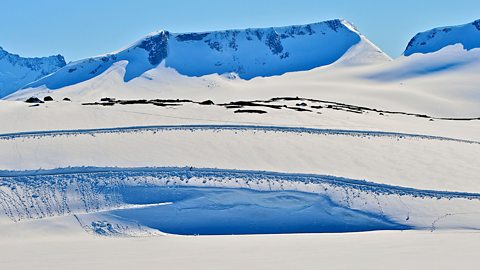
Climate is influenced by lots of different things, including:
- how near or far a place is from the Equator
- how near or far it is from the sea
- how high or low the ground is
- its position on a continent
Latitude influences climate. The closer to the Equator you are the more direct energy (heat and light) you receive from the Sun. Further away from the Equator, the tilt of the Earth means that the energy from the Sun is spread out over a wider area.
But there are exceptions, for example Mount Kilimanjaro. It’s located close to the Equator but often has snow on its summit. That’s because of its height, or altitude.
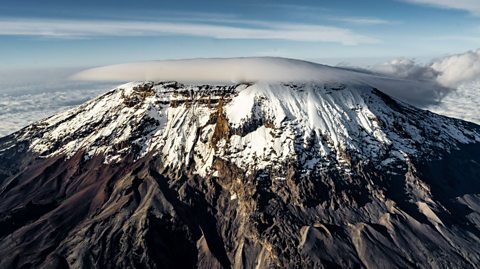
Watch: Weather and climate
I’m on my summer holidays and although I love Scotland, sometimes it’s nice to go somewhere with a warmer climate.
We work out what the climate in a place is by looking at the average weather for about 30 years, and seeing how warm or cold, rainy and windy it is during that time.
The climate is different depending on where you are in the world.
In Nigeria it’s usually very hot.
In Siberia it’s usually very cold.
In parts of New Zealand it’s very windy.
And in parts of India it’s very wet.
The climate across the world has always changed over hundreds, thousands, even millions of years.
600,000 years ago, parts of Britain used to be so warm, palm trees grew and hippos swam in the River Thames.
And 20,000 years ago, Britain was going through an ice age and woolly mammoths roamed the land.
These changes occurred naturally.
There are all sorts of reasons why the environment causes climate change. This is called a natural climate cycle.
But these days some of the change is because of the way humans have been burning fossil fuels to power our homes, factories and vehicles, which has caused lots of carbon dioxide to enter the atmosphere.
The carbon dioxide traps heat and is warming the planet faster than before.
This is called the greenhouse effect.
So maybe this year I’ll think a little more about the fuel I use and where I travel and stay in Scotland instead!
Climate change
The climate across the world has changed naturally over thousands and millions of years.
In the past, the UK has experienced both freezing ice ages and warm tropical climates.
Over the past 100 years, more carbon dioxide has entered the Earth’s atmosphere. This is because people have been burning fossil fuels, like coal and oil to heat homes and power factories and vehicles.
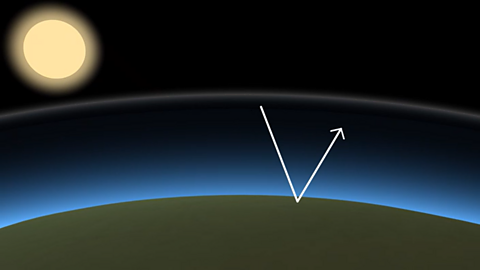
The atmosphere helps to keep our planet just the right temperature to live on.
The extra carbon dioxide in the atmosphere acts like a greenhouse. It lets the Sun's rays through to heat up everything, but stops the heat from escaping.
The increase in carbon dioxide from human activity is making our planet warm much faster than it naturally would. This is causing world climates to change. It seems extreme weather is now happening more frequently.
Impact of climate change
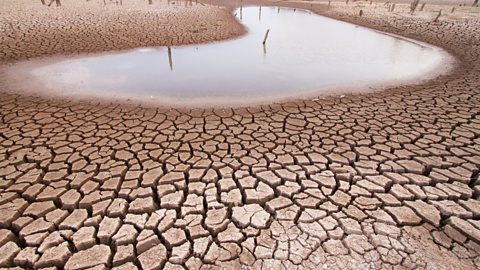
Image caption, Drought
Image caption, Forest fire
Image caption, Flooding
Image caption, Hurricanes
1 of 4
Watch: What is climate change?
Discover more about climate change in this video from The Regenerators.
Activity: Quiz – Weather and climate
Bitesize Primary games. gameBitesize Primary games
Play fun and educational primary games in science, maths, English, history, geography, art, computing and modern languages.

More on The natural world
Find out more by working through a topic
- count2 of 16
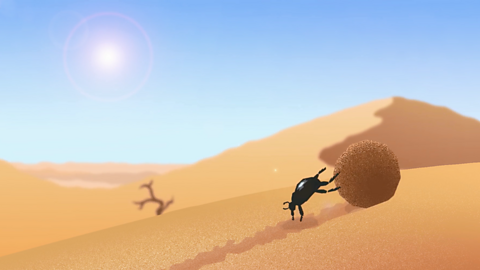
- count3 of 16

- count4 of 16
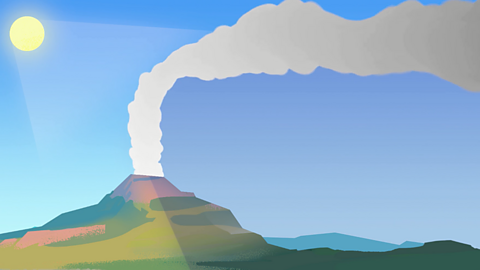
- count5 of 16
